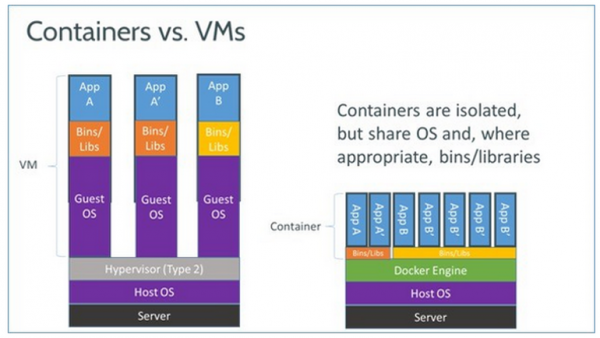By Poly, Solution Sales Specialist at Flat Rock
In the times when optimization and cloud computing are the center of attention in the tech world, Docker is the one technology that has overcome the challenges of automation, application flexibility and portability. The official release of the project was in 2013, but ever since then its popularity is growing fast. Its future is bright and the fact that it has become a vital part of huge companies such as PayPal, eBay and BBC News, can only show us part of the potential that this project keeps.
Docker and how it is relevant to your business
The main idea behind building the Docker project is to ease the process of applications deployment in software companies. What it actually does is provide a common tool for both programmers and operations engineers to serve the purpose of building, shipping and running distributed applications at one place. In order to enable flexibility and portability in this process, Docker uses a separate layer where all applications are processed in individual containers. By using containers, resources are isolated, services restricted, and processes have a special private view of the operating system with their own process ID space, file system structure and network interfaces.
Docker containers in comparison with VMs (virtual machines) can be visualized the following way:
Even though Docker is an open source project, it interacts equally well with both Linux, Mac OS and Windows operating systems and that offers the opportunity for wide penetration of this technology in the modern tech world.
Reasoning behind using it
But what are the features that make Docker become a vital part of any software company developing large-scale networks? It has:
> An extra layer of abstraction with almost zero overhead
> The ability to run any platform with its own config on top of the existing infrastructure
> Consistent environment from development through testing to production
> Application isolation
> Server consolidation (clustering)
> Security isolation - better than a shared web server, worse than a single VM. An application running in one container only has access to the ports and files explicitly exposed by the other container.
Docker simplifies the development of highly distributed systems by allowing a number of applications to run autonomously on a single physical machine or across multiple virtual machines. It makes it the right long-term solution for enterprises that deal with various projects at the same time.
Being on track with the latest technologies is an essential part of our business at Flat Rock. Therefore we try to utilize the successful piece of software and utilize it on a daily basis. In case you are interested in implementing Docker for your existing or brand new project, we would be more than happy to share our experience with you. Get in touch on +44 (0) 2071 938 298 or send us an enquiry.




